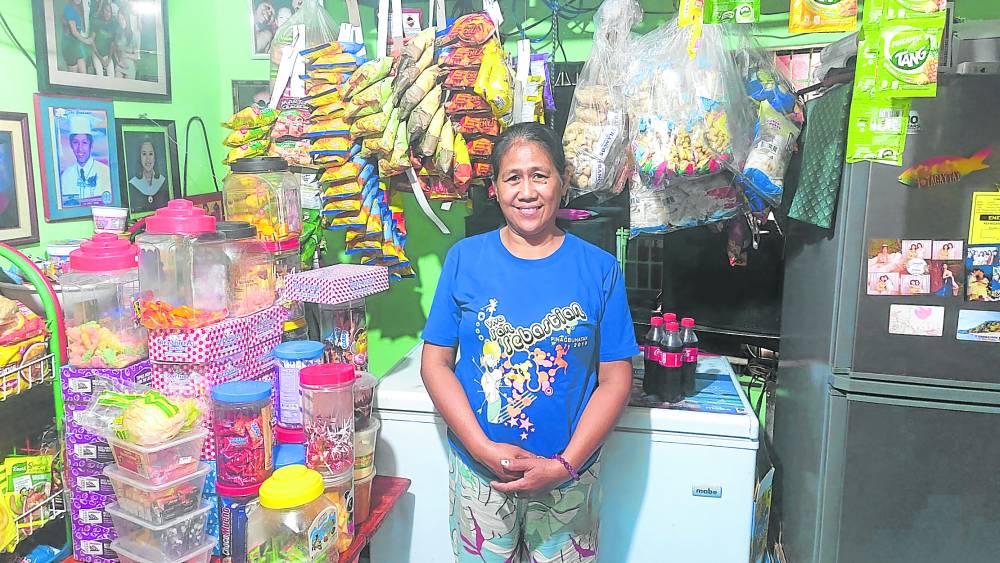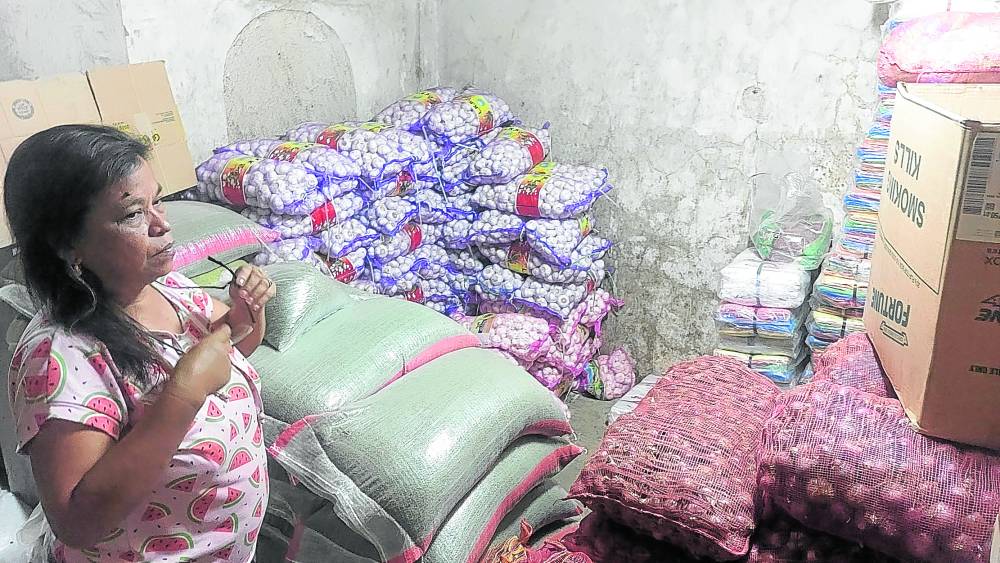Empowering Pinay microentrepreneurs

BREADWINNER Teodora Vega inside her “sari-sari” store in Pasig —photos by Gillian Villanueva
Nearly 20 years ago, Veronica Garcia used to hawk sili, kamias, sampalok and other spices in a pushcart. As her husband was not earning enough as taho and binatog vendor, she decided to start selling vegetables and other goods as well. Her sister, who had her own car, helped her buy products in Divisoria, Urdaneta, Pangasinan, and other provinces.
Nowadays, she is able to relax at home while her children tend to her stalls at a nearby wet market in Pasig. Her husband helps with the household chores. “I was pushing around a kariton, until I was able to rent a stall, until the stall became my own,” the 51-year-old says.
Part of the reason that she was able to succeed in growing her business was the financing she was able to get from ASA Philippines Foundation. Her sister, who used to be a member of ASA, introduced her to the microfinance company. At that time, Garcia was still renting a wet market stall.
“Back then, I was able to get a loan of P3,000. Then [it grew to] P5,000, then P10,000. Now, it’s P300,000,” she says. “It was a big help … because if you have a huge investment, your earnings will also be huge.”
Garcia recalls how she was able to jack up her profits during the pandemic after getting a loan. Because of the mandatory moratorium on loan payments during the lockdowns, she was able to raise her capital and earn more—so much so that she was even able to help their community. “I gave away rice to my neighbors: two kilos of rice, onions, monggo and even garlic,” she says.
ASA is a nonprofit, nonstock corporation established in 2004 that specializes in microfinance. All of its clients are women microentrepreneurs—71 percent of whom are married and between 31 to 50 years old. Apart from microlending, it also offers microsavings services.
“Our mission is to deliver the highest value for money, client-responsive microfinance, as well as supplementary products and services to the poor through the enterprising women of each Filipino family,” says ASA CEO Kamrul Hasan Tarafder.
For Shiela Diaz-Gabane, it was the low interest rate that attracted her to ASA. She has been a member of ASA for seven years, initially for her online food business. But after her husband, a former security guard, joined a group of motorcycle riders, they decided to open an online specialty store for riding and motorcycle gear instead.
“It was my neighbors who asked me if I wanted to join ASA,” Diaz-Gabane says. “We needed to raise capital for our business. Back then, we were just selling homemade meals. So I said, let’s try it out. The interest was low; we would be able to handle it.”
In 2021, they were able to put up a physical store in Pasig using money borrowed from ASA.
“Every six months or every year, we would get a loan. We could get up to P150,000, which would all go to the store. It’s what we used to buy our stock. Those hangers in our store, we bought them using the money from the loan. Without it, our budget would not have been enough,” Diaz-Gabane says.
In the future, the 35-year-old says that she and her husband plan to set up branches in other cities. “But first, we have to save up money,” she says. “We’ll continue to take out loans as long as we can pay for them.”

STOCKROOM Veronica Garcia surveys her ware.
$20-M funding
Last year, Citi Philippines extended a $20-million loan to ASA as part of the banking group’s global commitment to channel $1 trillion to sustainable finance by 2030. Citi has vowed to invest to create livelihood opportunities for 15 million households, including 10 million women, by 2025.
With a bigger war chest, ASA will be able to better bankroll more than 2 million clients nationwide, giving them the means to establish or improve their own microenterprises. For Teodora Vega, the loans from ASA did not only help her; she was also able to help her son start his very own business.
As one of ASA’s first members (she joined in 2004), the 55-year-old has been given a credit line of up to P150,000. She makes sure to spend the money on her businesses—her sari-sari store in Pasig, which is near her husband’s workshop, and her four hectares of farmland in Bacolod, her hometown, where they plant palay, corn and sugarcane.
But Vega had another business idea in mind. Her eldest son, a supervisor at a hotel in Ortigas, was originally supposed to leave for abroad. To make him stay, she helped him open his own business —a bar in Pasig. “I told my son, ‘you don’t have to leave. I will be the one to find a way,” she says.
Vega says, “Whenever our children have problems, they go to their mother. I wanted my son to have his own business, so I told him to build his bar. I can see that he’s managing it well. As a mother, I’m happy,” she adds.
Vega says she had initially invested P50,000 to help her son open a milk tea store, before switching to selling unlimited chicken wings as milk tea competition heated up. As operating cost surged along with the prices of chicken wings, the family decided to put up a bar instead,
“Every night, I survey his bar. My son tells me that I’m nosy, but that’s how I am with my kids,” she says. “Pag may tiyaga, may nilaga. (Perseverance bears fruit). That’s what I taught them.”
Aside from helping her son, Vega also hopes to ease any burden on her family by getting an insurance policy. One of the reasons she became interested in ASA initially was to avail of insurance benefits, given that she is not a member of the Social Security System. “[It’s] so that when my day comes, I have something that I can leave to my family,” she says.
